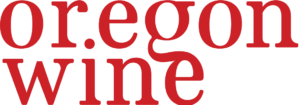Know Your Visitors: Find and Attract Quality Wine Tourists
Statewide research conducted in 2018 by the University of Oregon and Destination Analysts aimed to answer these questions: Who is Oregon’s wine tourist? What do they want from their time in our wine regions? How can wineries best suit their needs? This session shares findings from that research to prompt a spirited discussion about strategies for attracting quality visitation to your tasting room, from promoting your business to maximizing the potential of partnerships with like-minded organizations and ultimately closing the sale.
View the Session Recording
Browse the Session Presentation
Speaker Bios
Raechel Sims is the director of communications & consumer sales for Cristom Vineyards, and also serves as 2019 chairwoman for the marketing committee of the Willamette Valley Wineries Association. An Oregon native, Raechel attended the University of Oregon where she studied journalism, hosted “Last Call Eugene” on KWVA 88.1FM and served as editor-in-chief of Oregon Voice Magazine. While her early writing career focused on music and included contributions to SPIN, Magnet and Seattle Weekly, Raechel found her passion for wine through bartending in some of Portland’s finest restaurants, eventually leading to food and wine-focused pieces with MIX Magazine and The Oregonian. She’s deeply honored to work alongside the executive team at Cristom Vineyards where she oversees all DTC sales channels as well as the company’s marketing and public relations efforts. When not at the winery, you can find Raechel at a concert, on the river, or enjoying her new hometown of McMinnville with her husband Andy and possibly immortal 17-year-old cat Jamy.
Vanessa Hadick is the marketing director for Sokol Blosser Winery, and also serves as the finance chair of the marketing committee for the Willamette Valley Wineries Association. Growing up in the wine industry in Monterey, CA, Vanessa attended UC Davis to study international relations and women’s studies. Studying, interning and working abroad as much as possible during her undergraduate tenure, it was while serving in restaurants that Vanessa developed a love for wine as the ultimate uniter of people around the world. Holding positions with Constellation Wines in San Francisco and Treasury Wine Estates in Australia for the first decade of her wine marketing career, Vanessa moved to Oregon four years ago to be a part of this incredibly collaborative wine community and to earn her MBA from Portland State University. At Sokol Blosser Winery, Vanessa oversees all marketing and public relations efforts across the company. A member of Sokol Blosser’s Green Team, Vanessa is passionately committed to environmental and social sustainability as the future of business.
Brad Niva (Nie Vah) is the executive director of Travel Southern Oregon, the contracted tourism management organization representing Douglas, Josephine, Jackson, Klamath and Lake counties. Under Niva’s (Nie Vah’s) management, this 34-year-old tourism office is in the process of reshaping its future to highlight the best of Southern Oregon. This includes strategic partnerships with the Umpqua Valley and Rogue Valley wine regions and making the wine industry a key tourism asset for visitors coming to the area. Brad has owned and managed three tourism businesses in the Rogue Valley and has a passion to use tourism as an economic development tool to promote our region and support our Oregon communities.
Aniko Drlik-Muehleck is a project coordinator with the University of Oregon’s Institute for Policy Research and Engagement (IPRE). She holds a B.A. in economics and global development studies from Grinnell College and a master’s degree in community and regional planning from the University of Oregon. Aniko’s work on planning and policy initiatives with UO’s IPRE focuses on economic development, rural capacity-building and inclusive outreach. Aniko has facilitated several projects in partnership with Travel Oregon aimed at highlighting and boosting Oregon’s unique resources. She values collaboration and public input as mechanisms to achieve community-based change.

Leave a comment